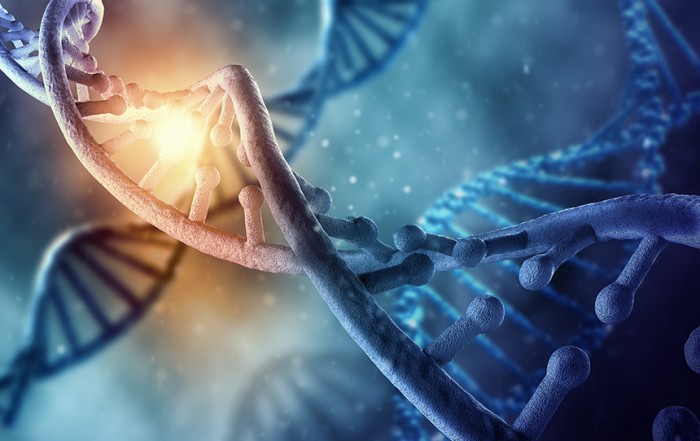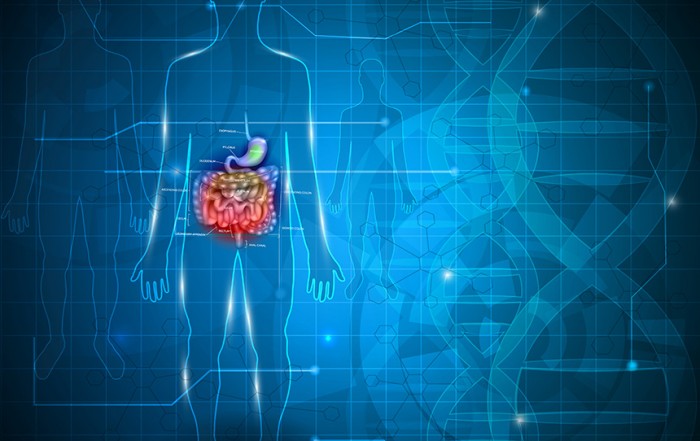Celiac Disease DNA Test (HLA-DQA1 and HLA-DQB1)
Find out if you are at increased risk
- Celiac disease is an autoimmune disorder triggered by gluten consumption
- Celiac disease affects up to 1 in 100 people
- Nearly 100% of celiac patients carry one or more of these alleles; HLA-DQA1*05, HLA-DQB1*02 and HLA-DQB1*0302
- Having a family member with celiac disease increases your risk by 10 – 15%
- Simple mouth swab DNA test with results in 1 – 2 weeks

What is Celiac Disease (HLA-DQA1 and DQB1) Genotyping?

The genes most commonly associated with celiac disease are the HLA-DQA1 and HLA-DQB1 genes. There is one allele of HLA-DQA1 (DQA1*05) and two alleles of HLA-DQB1 (HLA-DQB1*02 and HLA-DQB1*0302) that each increase the risk of developing celiac disease. This celiac disease genotyping analysis determines the presence or absence of these three alleles.
The Celiac Disease (HLA-DQA1 and DQB1) Genotyping Test uses high resolution Sequence Based Typing (SBT) technology to confirm an individual’s HLA-DQA1 and HLA-DQB1 genotypes. SBT testing technology is able to test whether an individual has two copies of each allele (homozygous), one copy (heterozygous) or whether an individual does not carry any of the at-risk alleles.
Step-by-Step
The kit can be ordered online, by fax or mail, or by phone. Once you place the order, the testing kit will be shipped directly to you. The kit contains swabs called “buccal swabs”. DNA is collected quickly and easily by rubbing the swabs inside your mouth against the cheek for 30 seconds. Once the DNA is collected, the swabs are placed into the specimen container provided in the kit and returned to the laboratory for testing using the return package included in the testing kit. Once your samples arrive at the laboratory, testing begins immediately and results are available in 1 to 2 weeks.
Symptoms of Celiac Disease
Gastrointestinal Symptoms
The symptoms of celiac disease vary between individuals and include both gastrointestinal and non-gastrointestinal symptoms. Gastrointestinal symptoms may include:
Non-Gastrointestinal Symptoms
The non-gastrointestinal symptoms of celiac disease also vary between individuals and may include:
- Fatigue
- Migraines
- Irritability, depression and anxiety
- Muscle cramps and joint pain
- Skin rashes (dermatitis herpetiformis)
- Growth & puberty delay
- Tingling in legs and feet
- Mouth ulcers and dental enamel defects
- Seizures
Frequently Asked Questions
Get Started
Celiac Disease Learning Center
What does my HLA genotype mean?
The celiac disease genotyping test offered by Genetrace detects three HLA variations (alleles) that are linked to an increased risk of celiac disease. Nearly 100% of celiac patients carry one or more of these alleles, [...]
Newly identified non-HLA mutations may further increase Celiac Disease risk
Nearly everyone who suffers from celiac disease will test positive for the HLA DQ2 and/or the DQ8 DNA haplotype. However, although the majority of celiac disease patients have the HLA DQ2 and/or DQ8 haplotype, not [...]
Identification of a DNA type which can protect against Celiac Disease
The HLA DQ2 and DQ8 haplotypes are two genetic variations that have long been known to be associated with an increased risk of celiac disease. Most people who develop celiac disease carry either the DQ2 [...]





